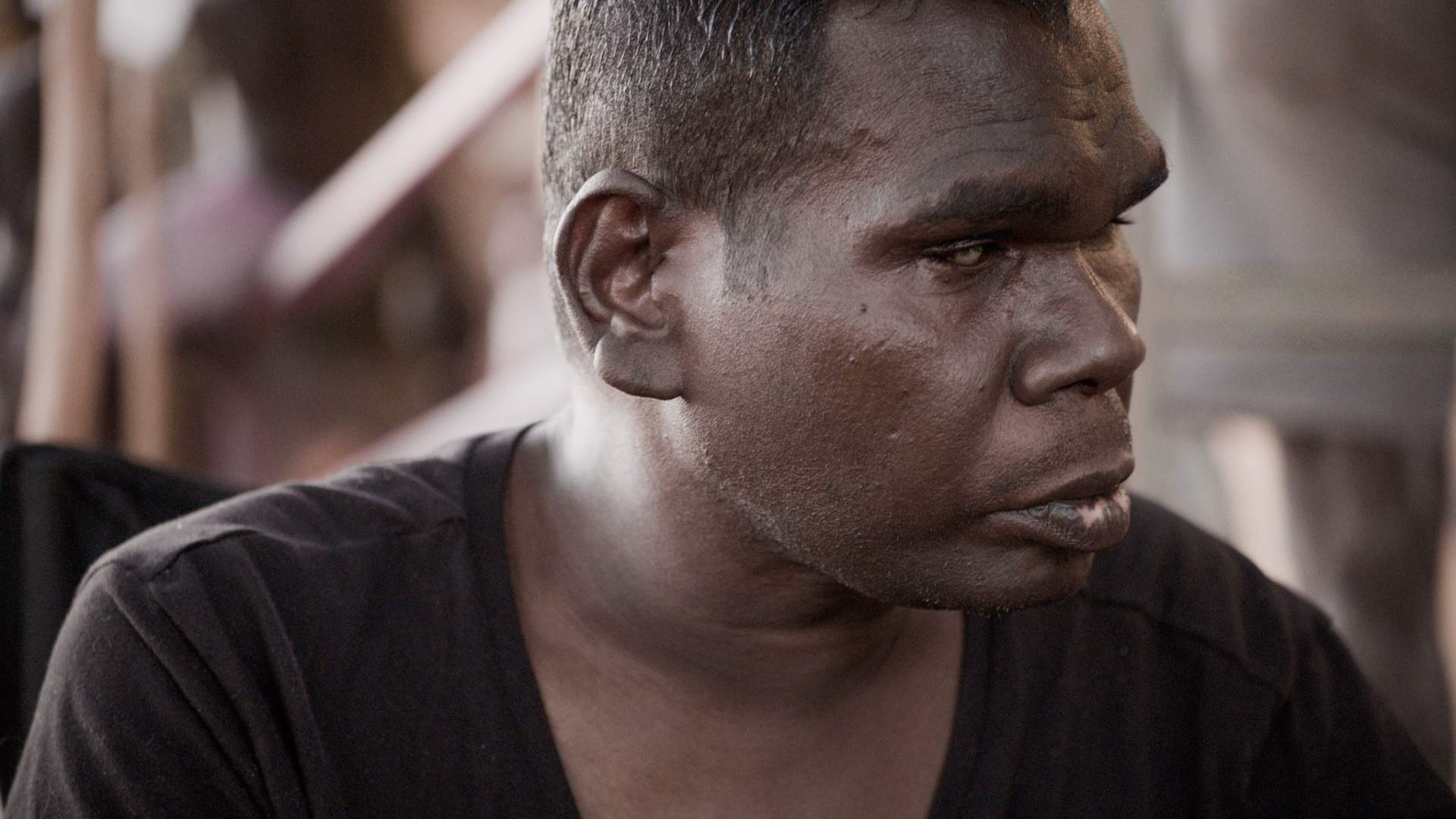Gurrumul
This insightful documentary explores the life, music and legacy of one of Australia's most important musicians.
Overview
On an international tour in 2009, Geoffrey Gurrumul Yunupingu was asked to sing with Sting on a French television program. The song: The Police's 'Every Breath You Take'. As seen in archival footage in the documentary Gurrumul, Sting jokes around and makes clumsy comments about how strange it is to croon the tune with the Indigenous musician, given that the Australian has been blind since birth. The mood is as awkward as anyone would expect, but Yunupingu, when he's not singing, mostly stays silent. Nor does he react to the track's famous line, "I'll be watching you". In fact, before learning the words for the performance, he wasn't familiar with the 1983 hit and didn't even know who Sting was.
Yunupingu remains a consummate professional throughout this encounter. Ultimately it's his music — often sung in the Gumatj, Galpu and Djambarrpuyngu languages of his Elcho Island home off the coast of Arnhem Land — that matters to him, not the circus that comes with it. In a documentary filled with moving moments, this segment with Sting speaks volumes. It's not the most mesmerising part of this exceptional and essential picture, which explores Yunupingu's life, work and legacy. It won't move audiences to tears like his tunes, and it won't incite cheers like his concerts. Rather, the scene encapsulates the everyday essence of a quiet talent with a powerful voice, while also outlining his approach to his career, in stark contrast with the industry around him. Make no mistake: as this thoroughly fascinating film makes plain, the late artist was a musician and a man utterly unlike anyone else.
Making his first feature, director Paul Damien Williams charts Yunupingu's days from childhood to his passing, painting a captivating portrait of one of the nation's undisputed icons. Thanks to the wealth of materials at the filmmaker's disposal, Gurrumul watches a charming toddler grow up to become a reluctant star — although it doesn't journey from Yunupingu's birth to his death in a linear fashion. It's also a globe-trotting road trip, accompanying the artist as his career takes him well beyond the Northern Territory. All of the requisite details are accounted for, including the singer's early days in Yothu Yindi and Saltwater Band, his wariness about pursuing music solo, and the fame that echoed as loudly as his astonishing tenor. Any filmmaker could amass this kind of biography, however Williams' skill is that he doesn't craft an easy ode, but truly endeavours to understand the man at the centre of his movie.
Sometimes, the documentary is happy to simply sit and watch as Yunupingu does what he does best: sing and play, his voice ringing out over the top of his own guitar or even paired with an orchestra. Sometimes, it delves deep into his clearly reclusive nature, whether he's keeping mum in interviews, preferring to stay at home, or failing to show up at the airport for what would've been a career-defining trip to America. What detail doesn't spring from Yunupingu's music and actions instead comes from those around him. His aunt Susan Dhangal Gurruwiwi provides personal stories, while producer and collaborator Michael Hohnen expands upon their work together, as well as their close bond. The end result is a dense and insightful documentary modelled in Yunupingu's image, proving as beautiful, intimate, layered and revelatory as the artist's remarkable songs.
Unsurprisingly, one specific topic hangs over the film. It isn't discussed on-screen, but the documentary commences with two sorrowful messages. Firstly, it advises that the movie was approved by Yunupingu just three days before his passing in July 2017. Secondly, the movie explains that Yolgnu elders have lifted the usual ban that follows death in their culture, which dictates that the name and image of the deceased should no longer be used. Both serve as an important statement about the doco and Yunupingu, indicating the care that is evident in every frame, the reverence with which he's held by his own community, and the fact that the film forms a welcome part of Yunupingu's body of work. The musician's final album, the just-released chart-topper Djarimirri (Child of the Rainbow), might be his last recording, but Gurrumul is also one of his final gifts. A heartfelt, affectionate and admiring celebration of Yunupingu's success completely on his own terms, it's not a cinematic eulogy but rather a rare and haunting glimpse at one of the country's most significant music talents.





